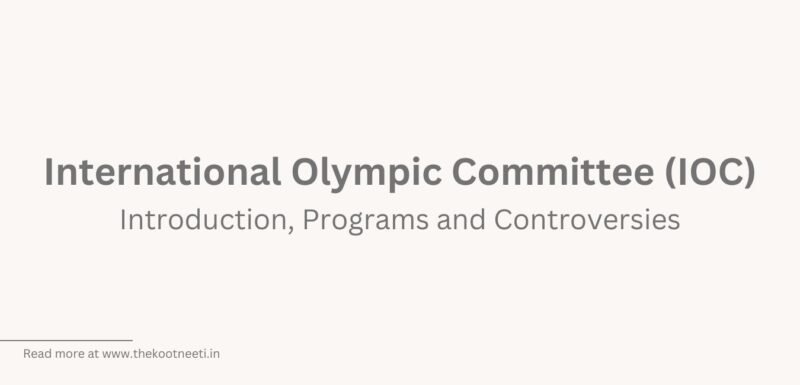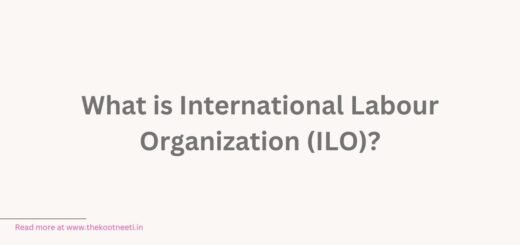International Olympic Committee (IOC): Introduction, Programs and Controversies

The International Olympic Committee (IOC) is the organization responsible for the organization and oversight of the Olympic Games, which are a major international multi-sport event held every four years. The IOC is headquartered in Lausanne, Switzerland, and it was established in 1894. The IOC is composed of representatives from all over the world, and it works to promote the Olympic movement and to ensure the success of the Olympic Games.
The IOC is responsible for selecting the host city for the Olympic Games, and it works with the host city to plan and organize the Games. The IOC also supports the development of sport and physical activity around the world through a number of programs and initiatives.
Programs and Initiatives
The International Olympic Committee (IOC) has a number of programs and initiatives that support the development of sport and physical activity around the world. Some examples include:
- Olympic Solidarity – This is a program that provides financial and technical support to National Olympic Committees (NOCs) and their athletes. It helps to develop sports programs and to provide training and support for athletes in developing countries.
- Olympic Education – This is a program that promotes the values of Olympism and encourages the development of physical education and sport in schools around the world. It provides resources and support for teachers and schools to help them incorporate sport and physical activity into their curricula.
- Olympic Scholarships – This is a program that provides financial support to athletes who are training for the Olympic Games. It helps to cover the costs of training and competition for athletes who may not otherwise be able to afford it.
- Olympic Values Education Programme (OVEP) – This is a program that promotes the values of Olympism and encourages the development of character education in schools around the world. It provides resources and support for teachers and schools to help them teach the values of Olympism and to promote character development in their students.
- Olympic Games – The Olympic Games are the flagship event of the IOC, and they are held every four years in a different city around the world. The Olympic Games bring together thousands of athletes from around the world to compete in a variety of sports, and they are watched by billions of people around the world.
There have been a number of controversies surrounding the International Olympic Committee (IOC) over the years. Some examples include:
- Corruption scandals – The IOC has faced allegations of corruption in the past, including allegations of vote-buying and bribery in the selection of host cities for the Olympic Games. In 1998, several IOC members were expelled or resigned in the wake of a corruption scandal related to the 2002 Winter Olympics in Salt Lake City.
- Doping scandals – The IOC has faced criticism for its handling of doping scandals, particularly in relation to the use of performance-enhancing drugs by athletes. In 2016, the World Anti-Doping Agency (WADA) released a report detailing widespread doping among Russian athletes, leading to the suspension of the Russian Olympic Committee by the IOC.
- Human rights issues – The IOC has faced criticism for its handling of human rights issues in relation to the Olympic Games. In particular, there have been concerns about the impact of the Olympic Games on local communities, including issues such as forced evictions, disruption of services, and the use of public funds for the construction of Olympic facilities.
- Sponsorship and commercialization – The IOC has faced criticism for its reliance on corporate sponsorships and the commercialization of the Olympic Games. There have been concerns about the influence of sponsors on the Olympic Games, as well as the use of the Olympic brand for commercial purposes.
- Gender and diversity issues – The IOC has faced criticism for its handling of gender and diversity issues in relation to the Olympic Games. There have been concerns about the lack of representation of women and minority groups in the IOC, as well as the unequal distribution of resources and opportunities within the Olympic movement.


















